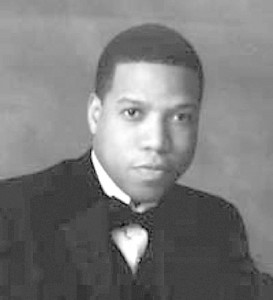‘Howard Hack’ gives students opportunity to design apps
23rd June 2014 · 0 Comments
By Rosemary Eng
Staff Writer
(Special from The NorthStar News & Analysis) – Legand Burge wants to introduce young African Americans to Howard Hack.
That’s not some cool dude with zero name recognition. Howard Hack is, in short, the Howard University Student Hackathon initiated last year by Howard University with Black Founders Startup Ventures of San Francisco.
Dr. Legand Burge III, professor and chairman of the systems and computer science department at Howard, which is based in Washington, D.C., is pushing to get young African Americans a foothold into the exciting, high-paying tech industry.Black Founders has the same goal, stating on its website that “in Silicon Valley, the hackathon is part of our culture, but many students at historically Black colleges and universities (HBCU) have never had the chance to participate in one.”
“HBCUHacks is a hackathon that gives students at HBCUs the opportunity to flex their coding skills while working together to build mobile apps and web software. During these hackathons, students can also connect with tech companies hiring for open positions,” the group states.
”Nowadays hacking and coding really mean building software, writing the language of software. It is interchangeable with programming,” said Hadiyah Mujhid, co-founder and director of educational outreach for Black Founders.
Google raised eyebrows when it recently released its workplace diversity data submitted last year to the U.S. Equal Employment Opportunity Commission showing one African American in its executive ranks (David Drummond, senior vice president of corporate development, and chief legal officer) and less than one per cent of African Americans among its team of professionals.
Google also has low representation of Hispanics, Native Ameri-cans and women, meaning in essence its work force is mostly white male. Well before Google’s report hit the media Howard University and Black Founders already knew some serious work needed to be done to increase African-Am-erican representation in the tech industry.
Mujhid says it is not traditional discrimination creating the workforce imbalance, particularly in new start-ups. Mujhid, a software and systems engineer who graduated from an HBCU school — the University of Mary-land, Eastern Shore — says new tech companies tend to be small. If the company founders attended universities like Stanford or Harvard, they are likely to reach back and hire people they went to school with.
Circumstances are different with students from the hundred or so U.S. Department of Education-designated historically black colleges and universities, said Burge.
“First, students are descendants of slaves,” he said. Most of them do not come from schools where computer science and coding are taught early on. “Keyboarding is not CS (computer science), Microsoft Office is not CS. About 10 to 15 percent of students come from upper middle-class homes. They are ready to go, they know what they need to do.”
Burge started out that way. His father has a doctorate in electrical engineering and his mother was a schoolteacher. He has double Bachelor of Science degrees in computer and information science and mathematics from Langston University, an HBCU in Langston, Okla. and Master of Science and doctoral degrees in computer science from Oklahoma State University.
“The majority of students,” continued Burge, “may not have the SATs, their math may not be as strong. Then there are students who come from nothing. We find students where they are and get them to where they need to be.”
At HBCU hackathons, the idea is to get students intrigued whether or not they are in computer science.
The Howard Hackathon last year attracted more than 80 students who piled into the offices of Google Washington DC to spend a grueling 24 hours designing the best web or mobile app as judged by a panel of industry professionals. As at every tech-fueled event, there was ample food, snacks and caffeine with some impromptu stress-busting dancing.
More than 20 members of the Black Googlers Network were on hand for technical and moral support.
Howard’s CS department historically has had liaisons with big corporations such as IBM, Intel, Microsoft. But now Burge is cultivating a relationship with Google, which he describes as “the pinnacle.”
Google executives announced at its May shareholders meeting that the company, which has been working with Howard, will go to other historically Black colleges and universities to help their CS departments.
At Howard, Google software engineer Charles Pratt was assigned as visiting instructor in computer science. As a “Googler in Residence,” Pratt, an African American, worked with Howard instructors to enhance the university’s CS curriculum.
Pratt earned his Bachelor’s Degree from Carnegie Mellon University in game design and computer science, and his Master of Science degree in computer science from DigiPen Institute of Technology, school that focuses on game design.
This article originally published in the June 23, 2014 print edition of The Louisiana Weekly newspaper.




